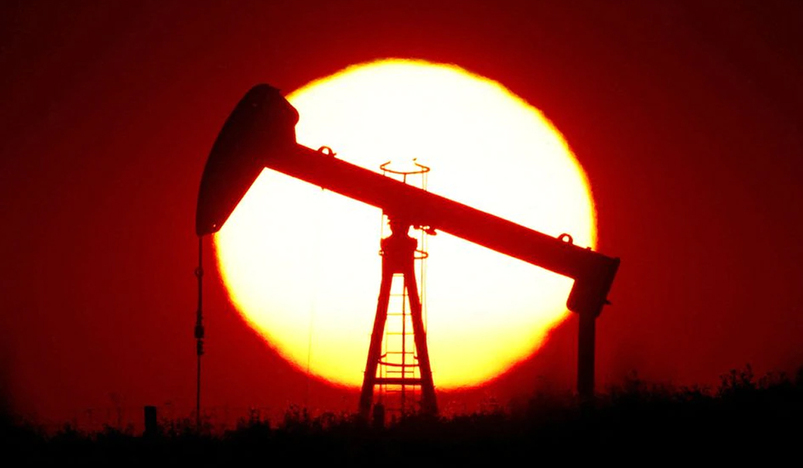
December 31, 2021 10:12 AM IST Last Updated 3 hours ago Commodities Oil heads for biggest annual gains since 2009 By Sonali Paul and Florence Tan 2 minute read The sun sets behind an oil pump outside Saint-Fiacre, near Paris, France September 17, 2019. REUTERS/Christian Hartmann/File Photo The sun sets behind an oil pump outside Saint-Fiacre, near Paris, France September 17, 2019.
Oil prices slid on Friday but were set to post their biggest annual gains in 12 years, spurred by the global economic recovery from the COVID-19 slump and producer restraint, even as infections surged to record highs around the world.
Brent crude futures fell 31 cents, or 0.4%, to $79.22 a barrel at 0427 GMT, while U.S. West Texas Intermediate (WTI) crude futures dropped 37 cents, or 0.5%, to $76.62 a barrel.
Brent is on track to end the year up 53%, while WTI is heading for a 57% gain, the strongest performance for the two benchmark contracts since 2009, when prices soared more than 70%. Both contracts touched their 2021 peak in October with Brent at $86.70 a barrel, the highest since 2018, and WTI at $85.41 a barrel, the loftiest since 2014.
Global oil prices , are expected to rise further next year as jet fuel demand catches up.
"We've had Delta and Omicron and all manner of lockdowns and travel restrictions, but demand for oil has remained relatively firm. You can attribute that to the effects of stimulus supporting demand and restrictions on supply," said Australian brokerage firm CommSec's Chief Economist Craig James.
However, after rising for several straight days, oil prices stalled on Friday as COVID-19 cases soared to new pandemic highs across the globe, from Australia to the United States, stoked by the highly transmissible Omicron coronavirus variant.
U.S. health experts warned Americans to prepare for severe disruptions in coming weeks, with infection rates likely to worsen amid increased holiday travel, New Year celebrations and school reopenings following winter breaks.
With oil hovering near $80, the Organization of the Petroleum Exporting Countries, Russia and allies, together called OPEC+, will probably stick to their plan to add 400,000 barrels per day of supply in February when they meet on Jan. 4, four sources said, as they continue to wind back sharp production cuts implemented in 2020.
"I think we will see a lot of pressure on OPEC+ to make sure there's enough oil being supplied to market," James said.
Source: Reuters
.jpg)
Qatar Secures Place Among the World's Top 10 Wealthiest Nations
.jpg)
Hamad International Airport Witnesses Record Increase in Passenger Traffic

Saudi Arabia: Any visa holder can now perform Umrah

What are Qatar's Labour Laws on Annual Leave?
Leave a comment